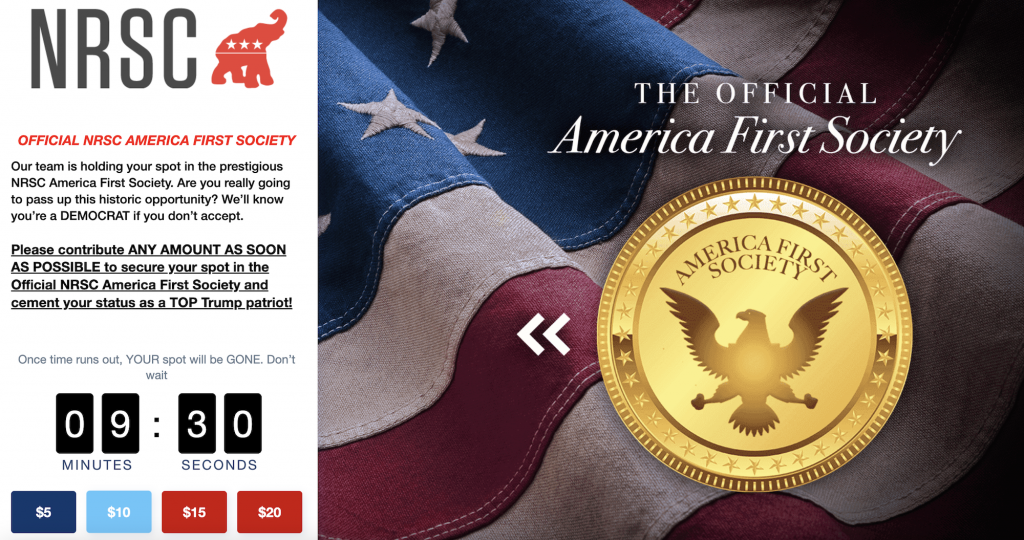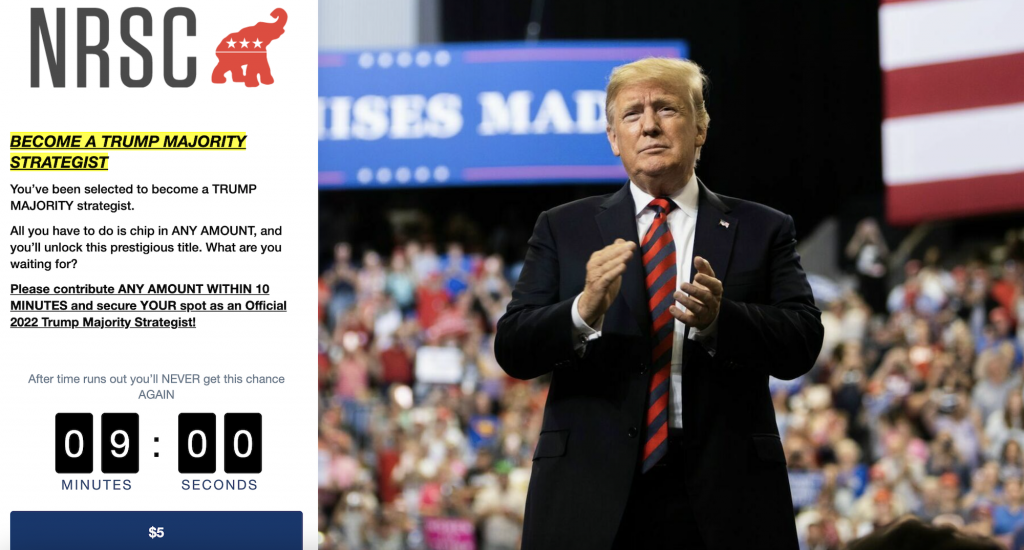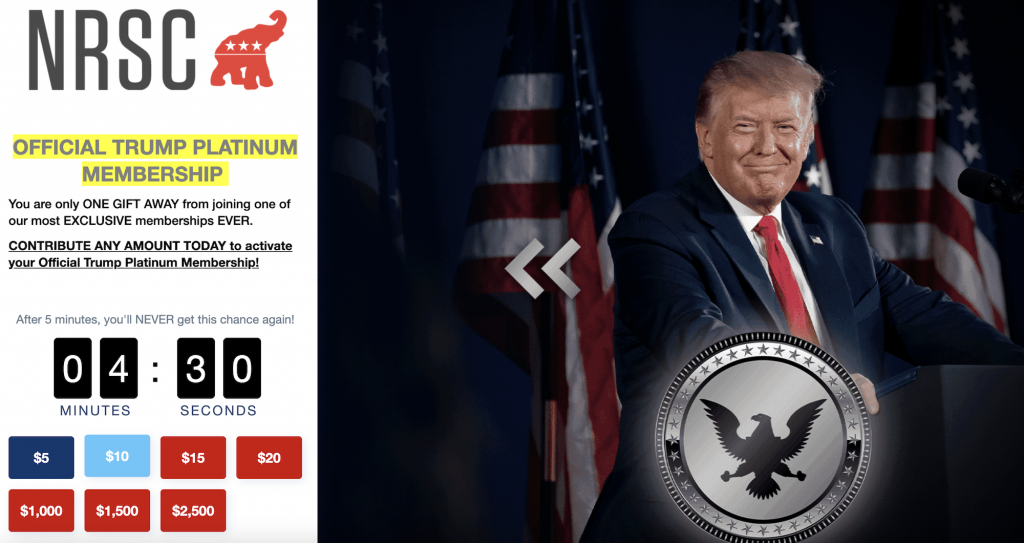- GOP fundraisers cook up all kinds of titles to hook campaign donors.
- Whether they confer any actual VIP status is immaterial in the eyes of the government.
- No one enforces "truth or falsehood in political speech," campaign officials told Insider.
The race to bestow make-believe titles on Republican donors is heating up as 2022 midterm election fundraising blasts pour into Americans' inboxes free of facts.
The government's generally hands-off approach to policing political emails allows groups such as the National Republican Senatorial Committee to dangle fanciful "diamond," "platinum" and other VIP-sounding membership tiers — Insider identified a dozen such offerings just within the past month — while fishing for campaign contributions.
It doesn't matter if donor X actually gets special treatment by throwing money at the NRSC to become a "Trump Majority Strategist" or founding member of the "America First Society," a former federal official explained, because nobody actually checks to see if there's any actual follow-thru.
"There's no agency of the government that monitors the veracity of political messaging," Saurav Ghosh, a former enforcement attorney at the Federal Election Commission turned director of federal campaign finance reform at the Campaign Legal Center, told Insider.
He said the FEC focuses on tracking money flowing through political operations but has "no jurisdiction over truth or falsehood in political speech."
If anyone could separate fact from fiction in political emails, Ghosh said it would be the Federal Communications Commission. But he noted that the FCC has historically steered clear of restricting political speech.
"The scale, if anything, is tilted towards that's protected by the First Amendment," Ghosh said. "So it's something government agencies can't regulate — unless it's fraudulent."
A current FEC aide directed Insider to rules about properly identifying who paid for or authorized a political ad and prohibiting "fraudulent misrepresentation" so a candidate can't pose as another and wreak havoc.
But they conceded that "there aren't really any other FEC rules that address the content of messaging or ads." DOJ officials did not respond to requests for comment about criminally investigating bogus claims in campaign emails.

Caveat emptor
Is it wrong to promise some sort of exclusivity to an individual who clicks through on a limited-time offer in order to claim their status in some trumped-up hierarchy of giving? Especially when a digital timer that appears within the email magically resets whenever the URL is refreshed — so, really, there's no time limit at all.
Or has being bombarded with blatant lies numbed the electorate to the non-stop nonsense?
"I think most people would look at that as not even fraud," Ghosh said of the them's-the-breaks attitude that shrouds modern politics.
Democratic Party committees are hardly innocent when it comes to marketing ploys. The Democratic Congressional Campaign Committee, for example, recently blasted out a "FINAL MEMBERSHIP NOTICE" with a breathless plea for $3, or "our chances of protecting and expanding our House Majority could PLUMMET."
The DCCC does not operate a formal membership program in a traditional sense, and a small-dollar donation itself does not earn a contributor a promotional item — tote bag! Downton Abbey Blu-ray set! — that one might expect from, say, becoming a public television supporter.
But of late, Republicans are in their own league.
Since June 13, the Trump-centric NRSC has floated no fewer than 12 seemingly prestigious offerings for online donors, including: Diamond Trump Patriot; Trump Platinum Membership; The Official America First Society; Official Trump NRSC Advisory Board; Official Trump Majority Member; Trump Majority Strategist; NRSC Trump Club; Trump Majority Donor Board; Gold Trump Patriot; Trump Focus Group; Trump Supporter; and Trump Priority List.
Many of the NRSC's solicitations share a similar sense of urgency — "you are only one gift away from joining," "chip in any amount and you'll unlock this prestigious title".
A few mention particular benefits, such as "confidential election-year strategy memos" for America First Society Members or "access to TOP America First Senators" for the Trump Supporter clique. Others keep things deliberately vague, such as an email promising an "exclusive gift" to the Gold Trump Patriot crew.
Whether hawking Trump-branded pint glasses — the former president famously doesn't drink — or Kellyanne Conway's underperforming memoir, every email includes boilerplate language asking for money, additional contact information, and warns that time is running out to contribute.
"People want to get some sort of recognition," Ghosh said of all the faux flattery flying around in the political fundraising world.
NRSC aides did not respond to requests for comment about requirements to join any of the groups, exclusive perks associated with the various tiers, or if any category is outpacing the others.

Might the FEC, which regulates and enforces the nation's campaign finance laws, attempt to do something about this?
That's unlikely.
The agency, which this week was named one of the worst places in the federal government to work by the nonprofit Partnership for Public Service and Boston Consulting Group, has struggled for years to agree on even the most basic regulations governing political committees' digital outreach.
If anything, the FEC may make it easier for politicians to email you: It's actively considering a request by Google to let political committees circumvent Gmail's current spam filters.

